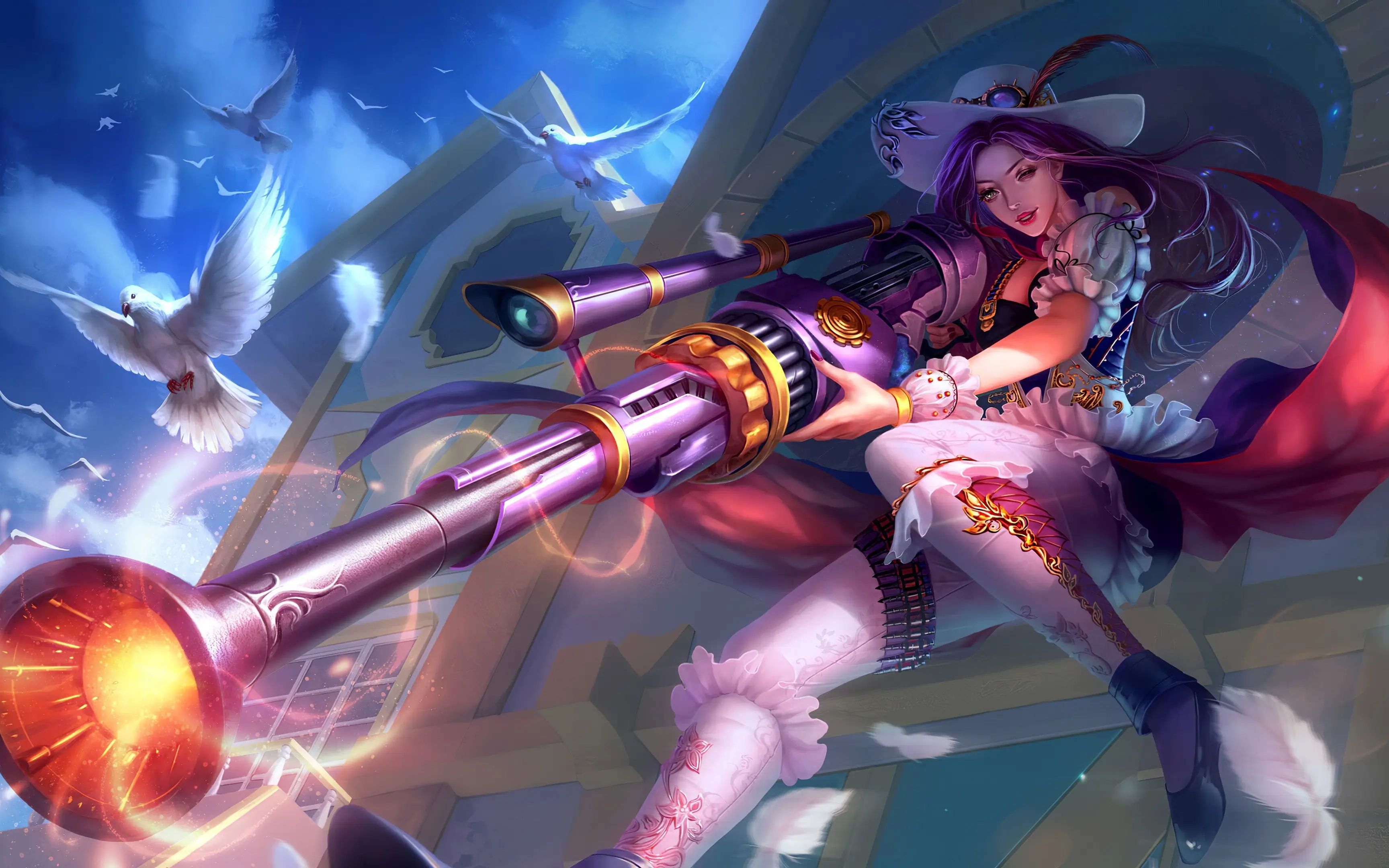Must-Read Deep Game News for Every Gaming Fan
The gaming industry is evolving at a breathtaking pace, with groundbreaking developments emerging almost daily. For dedicated gamers and enthusiasts, staying updated isn’t just a hobby—it's a way to fully appreciate and engage with the art and technology of interactive entertainment. Here’s a curated roundup of the most significant news and trends that every gaming fan should know.
The Rise of AI-Driven Gameplay
Artificial Intelligence is no longer just a buzzword; it’s fundamentally reshaping how games are designed and played. Recent advancements in AI have enabled more realistic non-player characters (NPCs), dynamic storytelling, and even personalized gaming experiences.
For instance, NVIDIA’s ACE (Avatar Cloud Engine) technology is making waves by allowing developers to create NPCs that can engage in natural, context-aware conversations with players. This isn’t just about better graphics—it’s about creating worlds that feel alive. Games like Cyberpunk 2077 and the upcoming Elder Scrolls VI are rumored to be leveraging similar AI frameworks to deliver unprecedented immersion.
Moreover, machine learning is being used to tailor difficulty levels and narrative arcs based on individual player behavior. Imagine a game that learns your playstyle and adjusts its challenges and story outcomes accordingly. This personalized approach could redefine replayability and player engagement.
Next-Gen Consoles and Hardware Innovations
The battle between console giants continues to intensify. Sony’s PlayStation 5 Pro and Microsoft’s Xbox Series X refresh are both slated for release in the coming year, promising enhanced performance, faster load times, and support for 8K resolution.
But it’s not just about raw power. Both companies are focusing on sustainability, with modular designs that allow for easier repairs and upgrades. Microsoft, for example, has announced a new initiative to reduce its carbon footprint by using recycled materials in console manufacturing.
On the PC front, graphics cards are becoming more efficient and accessible. AMD and NVIDIA are rolling out GPUs that support real-time ray tracing and AI-upscaling technologies like DLSS, making high-fidelity gaming more achievable for a broader audience.

The Metaverse and Social Gaming
The concept of the metaverse—a collective virtual shared space—is gaining traction, driven by platforms like Fortnite, Roblox, and Meta’s Horizon Worlds. These spaces are no longer just games; they’re social hubs where people gather for concerts, exhibitions, and even business meetings.
Epic Games recently announced a partnership with several major record labels to host virtual concerts within Fortnite, blurring the lines between gaming, music, and social interaction. Similarly, Roblox is investing heavily in educational content, positioning itself as a platform for learning and creativity.
This trend highlights a shift towards more integrated digital experiences, where gaming serves as a gateway to a multitude of activities. For gamers, this means more opportunities to connect, create, and explore beyond traditional gameplay.
Indie Games: The Heart of Innovation
While AAA titles often dominate headlines, indie games continue to be a hotbed of innovation and creativity. Recent gems like Hades II and Cocoon have demonstrated that smaller studios can deliver experiences that rival—and sometimes surpass—those of their big-budget counterparts.
Crowdfunding platforms like Kickstarter and Patreon have empowered indie developers to pursue ambitious projects without compromising their vision. Games like Eiyuden Chronicle: Hundred Heroes and Sea of Stars have garnered massive support, proving that there’s a hungry audience for unique, heartfelt storytelling and inventive mechanics.
Additionally, digital storefronts like Steam and itch.io are making it easier than ever for indie games to reach global audiences. This democratization of game development is fostering a diverse and vibrant ecosystem that benefits players and creators alike.
Esports and Competitive Gaming
Esports continues to grow into a mainstream phenomenon, with viewership numbers rivaling those of traditional sports. Major tournaments for games like League of Legends, Counter-Strike 2, and Valorant are drawing millions of spectators and offering multi-million-dollar prize pools.
What’s particularly exciting is the emergence of mobile esports. Titles like PUBG Mobile and Mobile Legends: Bang Bang are building massive competitive scenes, especially in regions like Southeast Asia and South America. This accessibility is helping to diversify the esports landscape and bring competitive gaming to new audiences.
Furthermore, organizations are investing in better infrastructure for players, including mental health support and professional training facilities. This professionalization of esports is ensuring that players can pursue careers in gaming sustainably and healthily.
Virtual Reality and Augmented Reality
VR and AR technologies are finally hitting their stride. With devices like the Meta Quest 3 and Apple’s Vision Pro, immersive gaming is becoming more comfortable, affordable, and compelling.
Games like Asgard’s Wrath 2 and Assassin’s Creed Nexus VR are showcasing the potential of VR to deliver deep, narrative-driven experiences. Meanwhile, AR games like Pokémon GO continue to evolve, incorporating new features and events that keep players engaged in the real world.
The integration of haptic feedback and motion controls is making these experiences more intuitive and immersive. As technology improves, we can expect VR and AR to become integral parts of the gaming landscape rather than niche curiosities.
Gaming and Mental Health
The conversation around gaming and mental health is becoming more nuanced. While excessive gaming can have negative effects, studies are increasingly highlighting the benefits of gaming, such as stress relief, cognitive improvement, and social connection.
Developers are also taking steps to promote healthier gaming habits. Features like playtime reminders, customizable difficulty settings, and inclusive design are becoming standard. Games like Celeste and Spiritfarer are praised for their empathetic approach to themes like anxiety and loss.
Additionally, organizations like Take This and the Global Gaming Initiative are working to reduce stigma and provide resources for gamers struggling with mental health issues. This holistic approach is fostering a more supportive and inclusive community.
The Future of Game Distribution
Digital distribution has long been the norm, but new models are emerging. Cloud gaming services like Xbox Cloud Gaming and NVIDIA GeForce Now are making high-end gaming accessible on low-spec devices, effectively eliminating hardware barriers.
Subscription models are also gaining popularity. Services like Xbox Game Pass and PlayStation Plus offer vast libraries of games for a monthly fee, providing incredible value and convenience. This shift towards “netflix for games” is changing how players discover and access content.
At the same time, physical media is seeing a resurgence among collectors and preservationists. Limited-run companies like Limited Run Games are producing physical editions of digital-only titles, ensuring that games remain accessible even as platforms evolve.
Conclusion: Stay Curious, Stay Engaged
The world of gaming is richer and more dynamic than ever before. From technological advancements to cultural shifts, there’s always something new to explore and appreciate. By staying informed, we not only enhance our own experiences but also contribute to a community that values innovation, inclusivity, and creativity.
Whether you’re a casual player or a hardcore enthusiast, these developments are shaping the future of gaming—and that’s something worth celebrating.
Tags: #GamingNews #AIInGaming #NextGenConsoles #IndieGames #Esports #VRGaming #MentalHealth #GameDistribution #Metaverse #GamingCommunity


















